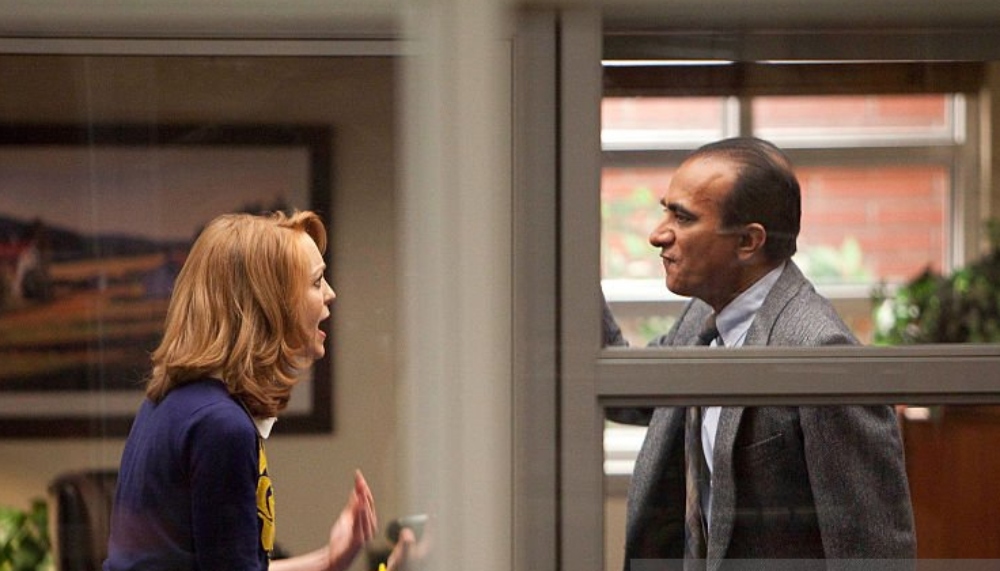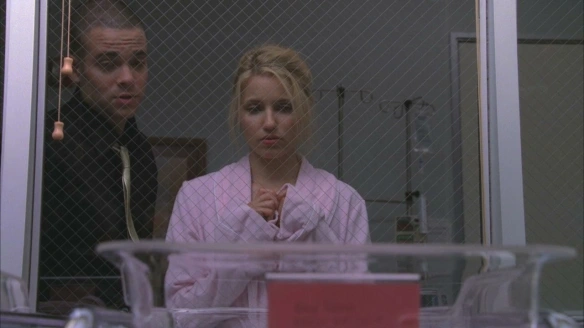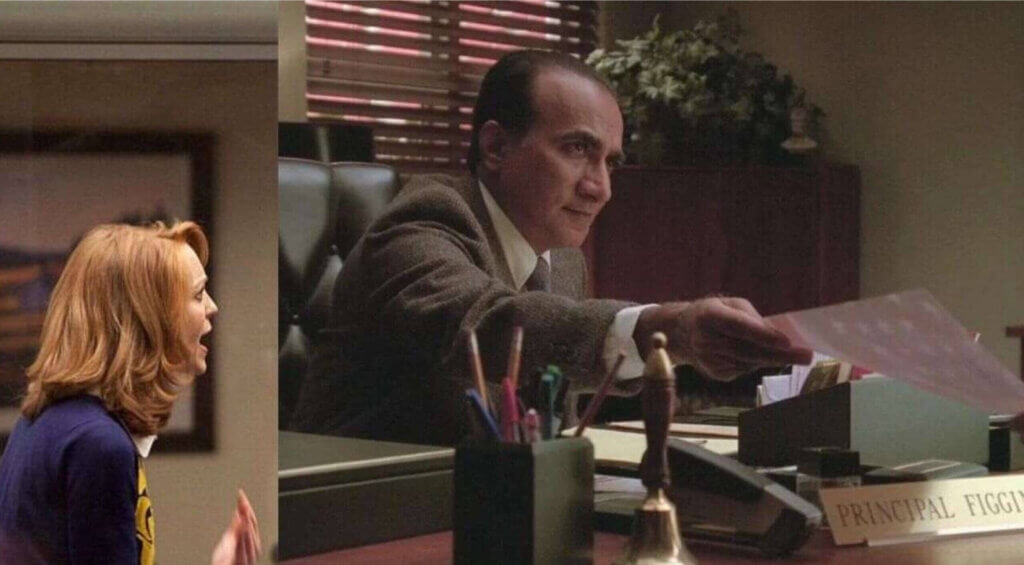In the arena of Glee, Principal Figgins is regularly seen as a stern authority figure, while Emma Pillsbury is portrayed as a more compassionate and expert man or woman. However, in a memorable scene from the show’s second season, those characters find themselves locked in a heated argument, highlighting the complexities in their personalities and the challenges of navigating student-management relationships. This article will delve into a detailed analysis of this confrontation, exploring the diverse views involved and the effect it has on the characters and the story as a whole.
The background of the situation
The disagreement between Emma Argues With Principal Figgins arises due to Emma’s choice to take part in an extracurricular pastime that conflicts with her everyday elegance schedule. This pastime, which is later discovered to be glee club, is something Emma believes could greatly contribute to her personal growth and development. She provides Principal Figgins with a nicely-researched suggestion outlining the potential advantages of the hobby, including management skills, teamwork, and advanced academic performance. Emma argues that she will efficiently manage her time and keep her educational standing.
The Origin of the Argument
Emma Argues With Principal Figgins’s argument did not start in thin air. It ended with lingering conflicts and divergent critiques on how to efficiently manipulate the learning surroundings. Emma is adamant about offering every youngster specialized attention and health; consequently, she frequently reveals herself in conflict with Principal Figgins’ stricter, extra coverage-driven method. A range of factors, consisting of resource allocation and policy adjustments as well as specific pupil situations wherein their interests conflicted, might have given upward thrust to this particular confrontation.
Emma’s Perspective
From Emma’s perspective, the extracurricular pastime provides a treasured possibility for self-discovery and mastery. She views it as a way to explore her pastimes, broaden her capabilities, and connect with different college students. Emma is captivated by her capability involvement and believes it aligns with her overall desires for personal growth. Her well-prepared idea demonstrates her commitment to the interest and her notion that she will handle the added obligation without compromising her instructional performance.
Principal Figgins’ Viewpoint

Principal Figgins, however, has an extraordinary perspective. As a school administrator, he has witnessed firsthand the challenges college students face when balancing extracurricular sports with their academic workload. He is concerned that the additional commitment may negatively impact Emma’s studies and result in strain and burnout. Ultimately, his decision stems from a desire to prioritize her educational achievement and ensure her proper well-being.
The Argument
The resulting argument between Emma Argues With Principal Figgins is a testimony to their contrasting viewpoints. Emma presents her case with conviction and ardor, highlighting the benefits of collaborating on the hobby. She challenges Principal Figgins’ assumptions and demonstrates a robust sense of self-advocacy. However, Principal Figgins remains steadfast in his selection, citing his experience and responsibility toward student welfare. The disagreement will become heated, showcasing the anxiety among individual aspirations and institutional rules.
The significance of the argument is…
The argument between Emma Argues With Principal Figgins is vast for several reasons. It underlines the importance of open communication and knowledge sharing between students and administration. It also sheds light on the complex challenges faced by college students who balance educational needs with extracurricular pastimes. Additionally, the scene highlights the strength dynamics at play within the faculty surroundings and the capacity for warfare while character desires clash with institutional policies.
Examining the conflict’s layers
Emma Argues With Principal Figgins‘s fight is more than just a quarrel. It symbolizes a simple ideological war. Emma generally takes a scholar-centered approach, emphasizing every person’s typical development. She helps with inclusive, compassionate policies and approaches that can be custom-designed to fulfill the necessities of a huge range of human beings. Principal Figgins, however, can put the seamless functioning of the school first, abiding by the regulations and guidelines that guarantee compliance and order.
Also Read: Best Indoor Plants For Your Health In 2023
The consequences of the debate
There are several results from a heated dispute like this. First of all, it impacts the weather at the college, possibly dividing employees who ought to guide Emma or Principal Figgins. Students may have different opinions about the administration and overall learning environment of the college as a result of this division. The debate might also affect future selections made on punishment, scholar welfare, and guidelines.
The Significance of Leadership and Communication
Emma and Principal Figgins’ debate is about the need for leadership and desirable verbal exchange in gaining knowledge of the environment. This episode emphasizes how critical it is for all stages of faculty management to have sincere conversations and recognize each other. It additionally emphasizes how leadership philosophies may have a large impact on how academic regulations are applied and how faculties are characterized.
Reaching a Settlement

Such disputes deserve more attempts to be resolved. Finding a common ground, being open to listening, and being dedicated to the main goal of pupil welfare are important. To find answers, which can be found in the exceptional pastimes of the youngsters and the school community, Emma and Principal Figgins would want to together apprehend the cost of each other’s viewpoints.
Broader implications for education
Emma and Principal Figgins’ dispute is not a unique instance. It displays tensions visible in instructional establishments around the world, where it can be tough to reap stability by following rules and imparting specialized interest for every student. It brings up extensive problems about how educational establishments might also balance the requirements for rigidity and adaptability while meeting the needs of college students.
Getting Around Morality and Ethics in Education
The argument between Emma and Principal Figgins brings to light the ethical and moral considerations that go into making decisions about training. Emma’s function is frequently primarily based on a moral code that puts the scholars’ emotional and mental health first. Her views commonly stem from a strong ethical conviction that educators must promote student-centered policy.
However, Principal Figgins may additionally give precedence to the ethical and prison ramifications of school policies because of the administrative and logistical boundaries imposed on his function. An important element of tutorial management is striking a balance between institutional duties and ethical imperatives, as this distinction in ethical prioritizing highlights.
Effects on the Development and Learning of Students
It is not possible to overestimate the effect that those disputes have on college students’ boom and studying. When administrators and instructors disagree, the effects may additionally seep into the lecture room. Students are often perceptive to group-worker conflicts, which could affect their academic enjoyment and feeling of protection at the faculty.
Furthermore, the resolution of these disputes can also bring about changes to procedures and guidelines that have an instantaneous impact on the instructional paths of college students. This circumstance serves as a clear reminder that developing supportive learning surroundings that promote every student’s holistic development has to be the main goal at the center of all instructional discussions and alternatives.
The Impact on the Characters and the Story
The war of words between Emma and Principal Figgins has a long-lasting impact on each character. Emma’s dedication and advocacy abilities are diagnosed, paving the way for ability compromise. The experience also strengthens her self-assurance and sense of agency. For Principal Figgins, the stumble gives a treasured possibility to re-compare his technique and keep in mind the individual desires of college students beyond their academic performance.
Conclusion
The confrontation between Emma Argues With Principal Figgins is a powerful second in Glee that transcends the confines of a single scene. It delves into the complexities of student-management relationships, highlighting the significance of open conversation, mutual admiration, and knowledge. Ultimately, the scene serves as a reminder that character growth and proper well-being are paramount, and educational establishments must strive to foster a supportive environment that empowers college students to pursue their passions while also fulfilling their educational obligations.




